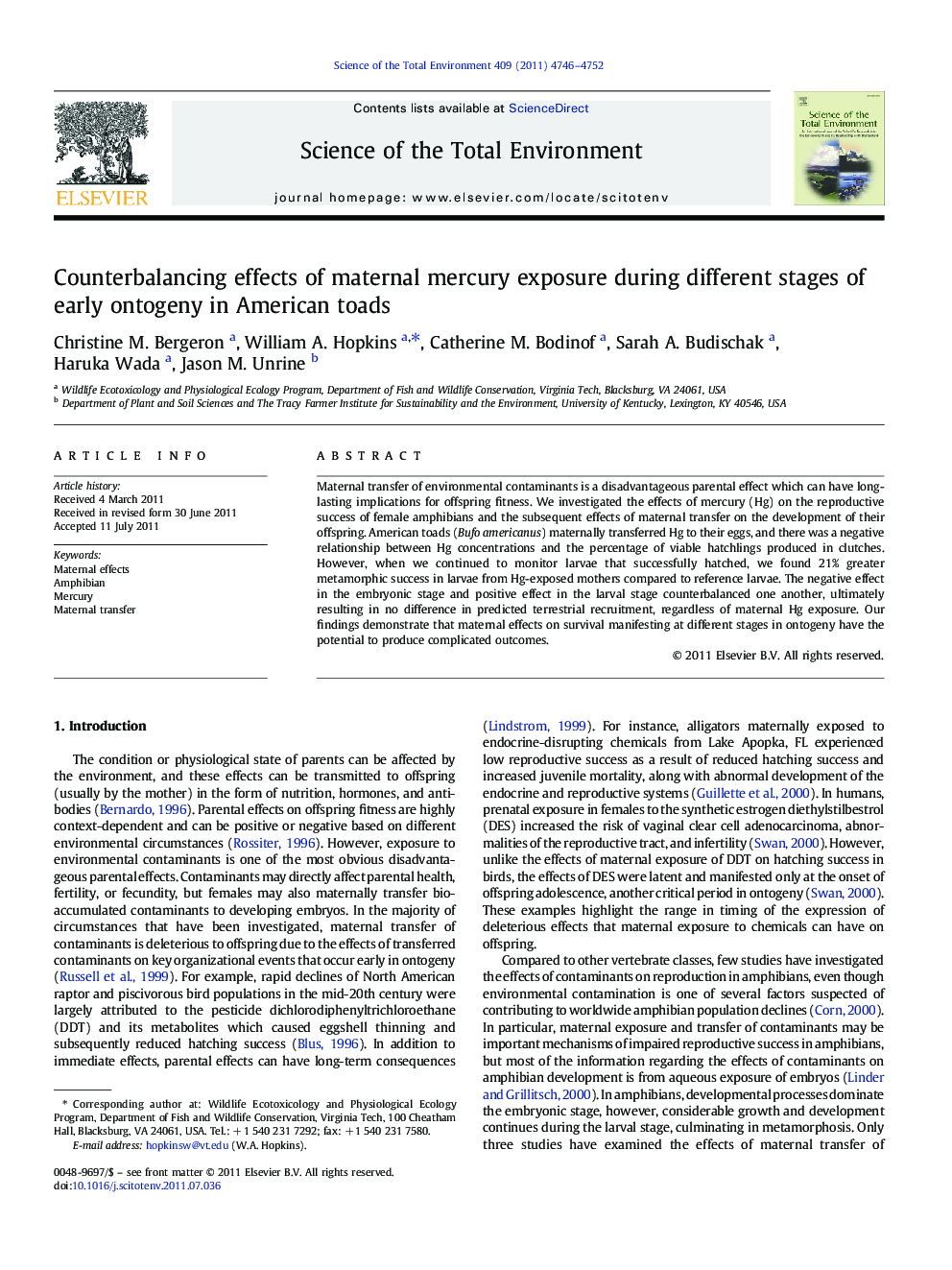| Article ID | Journal | Published Year | Pages | File Type |
|---|---|---|---|---|
| 4429963 | Science of The Total Environment | 2011 | 7 Pages |
Maternal transfer of environmental contaminants is a disadvantageous parental effect which can have long-lasting implications for offspring fitness. We investigated the effects of mercury (Hg) on the reproductive success of female amphibians and the subsequent effects of maternal transfer on the development of their offspring. American toads (Bufo americanus) maternally transferred Hg to their eggs, and there was a negative relationship between Hg concentrations and the percentage of viable hatchlings produced in clutches. However, when we continued to monitor larvae that successfully hatched, we found 21% greater metamorphic success in larvae from Hg-exposed mothers compared to reference larvae. The negative effect in the embryonic stage and positive effect in the larval stage counterbalanced one another, ultimately resulting in no difference in predicted terrestrial recruitment, regardless of maternal Hg exposure. Our findings demonstrate that maternal effects on survival manifesting at different stages in ontogeny have the potential to produce complicated outcomes.
► Hatchling viability decreased with increasing mercury concentrations in female body, blood, and eggs. ► Metamorphic success was greater in larvae from mercury-exposed compared to reference mothers. ► Regardless of maternal mercury exposure, no difference in predicted recruitment was found.
